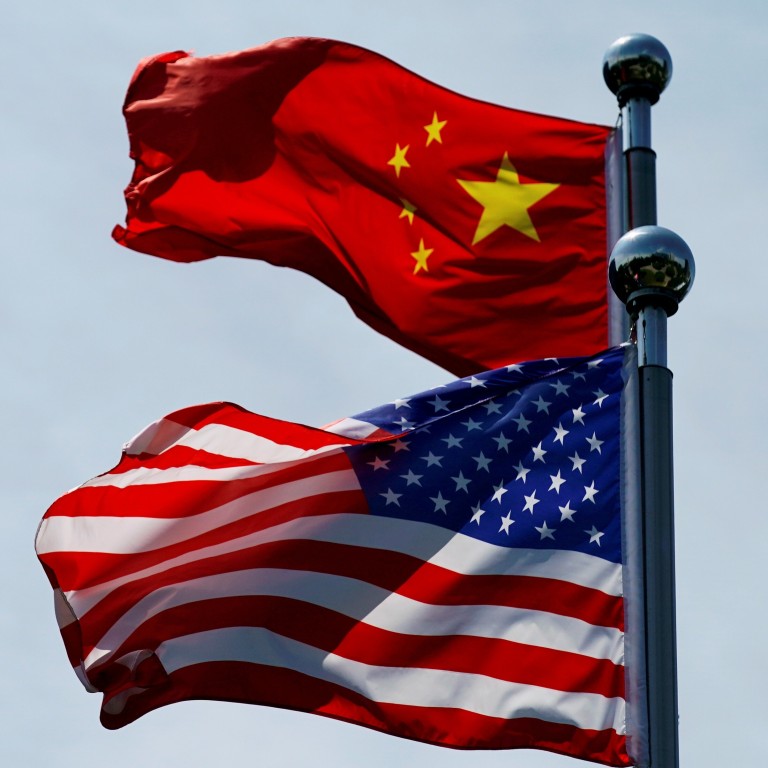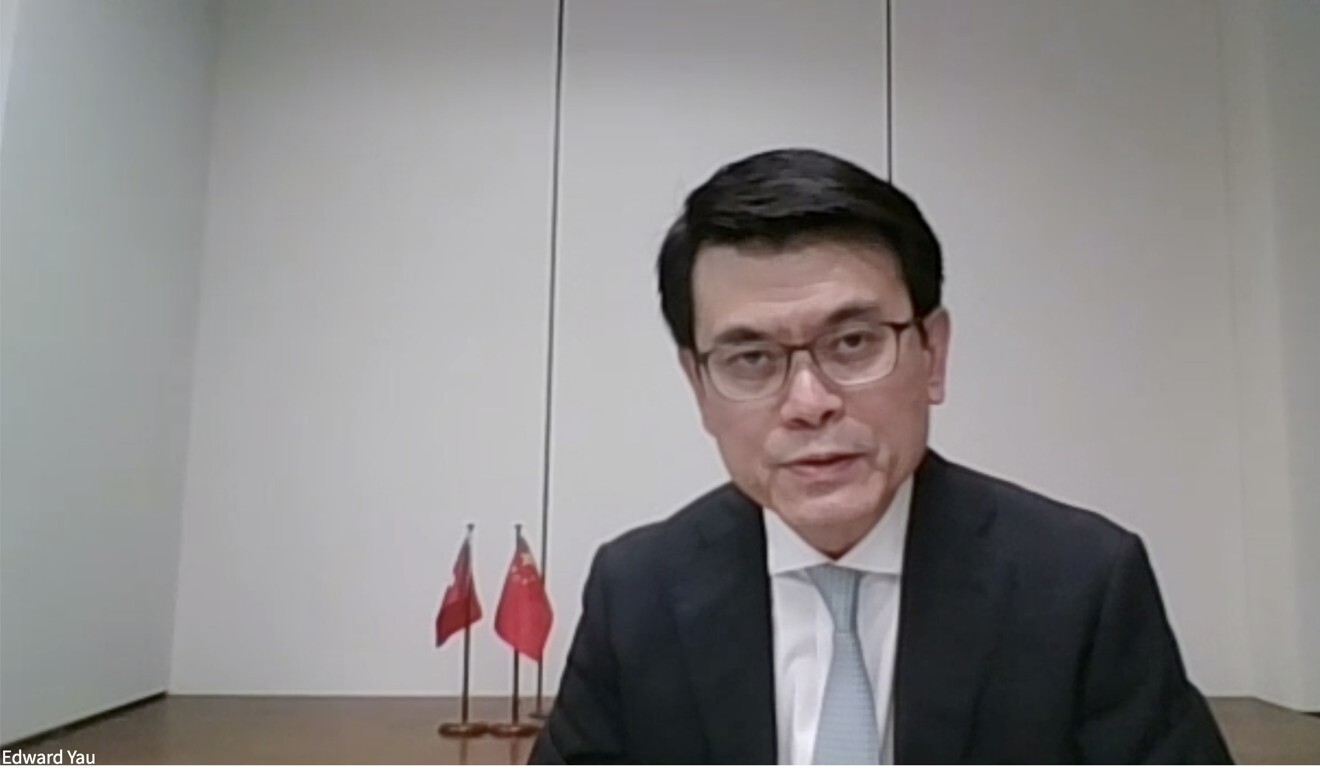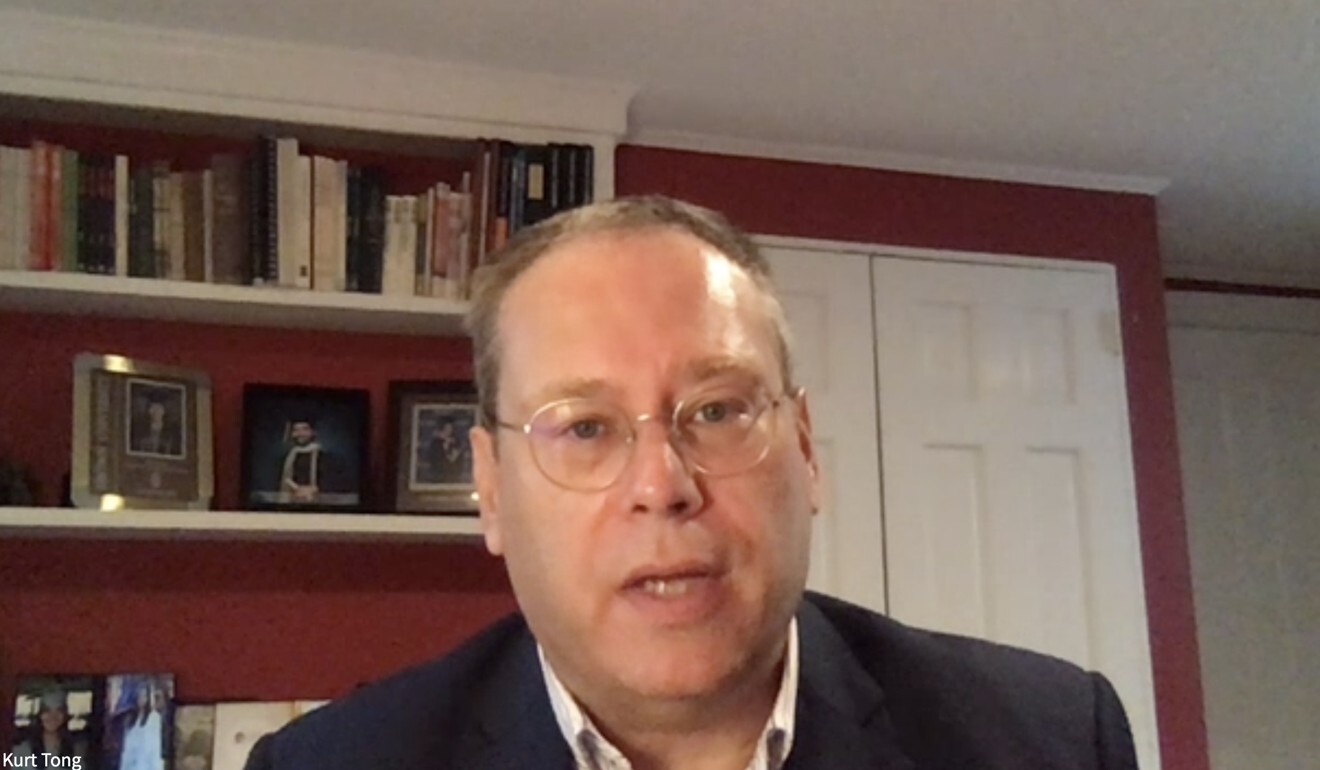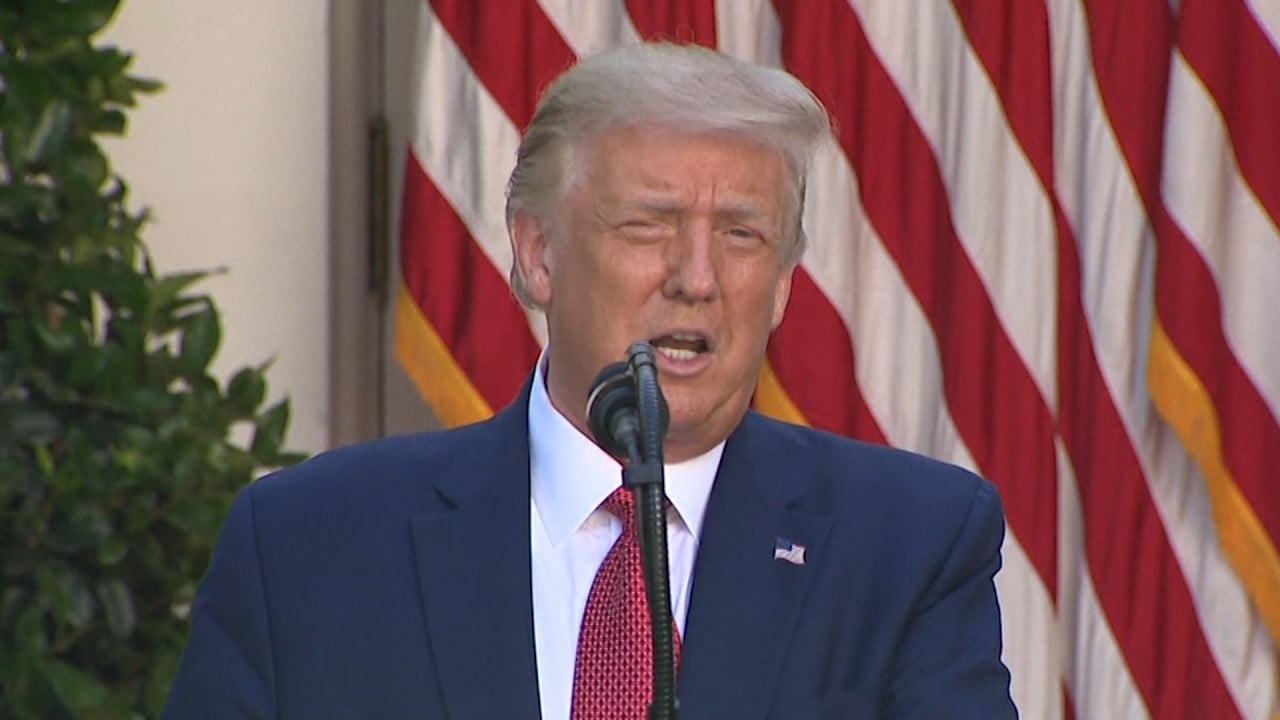
Exclusive | Business and political leaders tout Hong Kong’s special status, and dismiss fears national security law and US response are turning it into ‘just another Chinese city’
- Leading figures say fears over tariffs and threat to dollar peg are unfounded
- Bright future lies ahead through Greater Bay Area links
Leading business and political figures have dismissed the suggestion that Hong Kong is becoming just another mainland Chinese city, despite the United States’ decision to revoke its special status.
The city’s commerce minister, as well as other prominent officials, gave the assurance when speaking exclusively to the South China Morning Post on Friday night, at the first of a three-part webinar series, SCMP Conversations – Caught between the United States and China: Can Hong Kong’s economy thrive in uncertain times?

Secretary for Commerce and Economic Development Edward Yau Tang-wah, said the city’s uniqueness and special strength hinged on the “one country, two systems” principle which remained unchanged.
“Who’s the most qualified person to answer that question [that Hong Kong is just another mainland city]? Is it the US president, or Hong Kong people? Or is it the business community of the global village?” he said.
“Hong Kong has an edge. By design Hong Kong is different because of one country, two systems.”
Yau said the fundamental pillars that support Hong Kong had remained unchanged, including the rule of law, a level playing field, an independent judiciary, and free flow of information.

Kurt Tong, the former US consul general in Hong Kong and now a partner at the Asia Group, agreed.
“It’s clearly not just another Chinese city,” he said.
But he added the new law had an impact on investors’ confidence over the governing model, as they questioned if there were ramifications for how Hong Kong operated as a business centre.
“What’s the likely trajectory in the future?” he said. “Will there be any legal liability for international companies with respect to the national security law?
“The focus should be on answering those questions and thereby restoring confidence, hopefully.”
Prominent businessman Allan Zeman, said he never worried Hong Kong was losing its competitive edge, as being part of China guaranteed the city could benefit from a huge market of 1.4 billion people.
The founder of the Lan Kwai Fong nightclub district pointed to the example of the recent surge of listings of companies on Hong Kong’s stock exchange.
“For me, that is a vote of confidence,” he said.
China won’t be ‘threatened’ but is braced for US sanctions over security law
Yau also said that far from threatening the city’s autonomy, the new law would safeguard the unique system under which it operates.
“Article One [of the national security law] says that the purpose of this law ensures the resolute, full and faithful implementation of one country, two systems, under which the people of Hong Kong administer Hong Kong with a high degree of autonomy,” he said.
He said the letter of the law clearly gave high regard to this policy, and added that common law protections, such as an open court and jury trials, had been upheld.
“It’s no more different from any national security law in other countries,” he said.
As to widespread speculation that the US might change the Hong Kong currency peg to the US dollar, Tong said it was unlikely, as the move would not benefit the US either.

He said decoupling the currencies would only undermine the status of the US dollar, as it gained a lot of advantages from being used internationally.
As to whether existing punitive tariffs the US imposed on China would be applied to Hong Kong exports, Yau said it depended on whether the US still observed its obligations as a member of the WTO.
“I don’t think this is WTO compliant,” he said. “I think the whole world will give due regards and observe the trade rules.”
The US is one of Hong Kong’s top trading partners. According to the US Department of Commerce’s Bureau of Industry and Security, US exports subject to export control and shipped to Hong Kong amounted to between US$400 million and US$500 million each year from 2016 to 2018, consisting mainly of telecoms and information security products and electronics.

02:09
Trump signs Hong Kong Autonomy Act, ends city’s preferential trade status over national security law
Yau emphasised that for the decade to 2018, the US incurred an annual trade surplus of at least US$30 billion with Hong Kong, the highest among America’s trading partners, but he noted the surplus dropped to US$26 billion last year.
He said any punitive tariffs would serve as a “stumbling block” to trade relations between both sides, as everybody had to pay for the extra price.
“The collateral damage is not just for one party. We all stand to suffer,” he said.
As to the future of Hong Kong, Zeman believed it lay with its integration into the Greater Bay Area, China’s ambitious plan to connect nine major cities in Guangdong province with Hong Kong, and Macau, to create a massive, hi-tech economic zone.
“I see Hong Kong’s future is the Greater Bay Area,” he said. “It has a population of 70 million within 1½-hours to two hours by high-speed rail from Hong Kong, a huge market, bigger than South Korea.”
Zeman believes many foreign firms would come to set up business in Hong Kong, as they wanted to be a part of the opportunities presented by the bay area.
“Hong Kong’s future will be very, very bright,” he said.
Separately, on Saturday, at the first minister-level virtual meeting of Asia-Pacific Economic Cooperation (APEC) 2020, Yau called for all APEC economies to act in unity, and in a manner consistent with the WTO rights and obligations, and to refrain from putting up unjustified trade barriers.
He condemned “all sorts of discriminatory and divisive policies” at the meeting, where the economic bloc’s response to the impact of the pandemic was discussed.
“Let us make no mistake, the common enemy is the virus. And only by working together can we win, failing that, we all lose,” he said.

